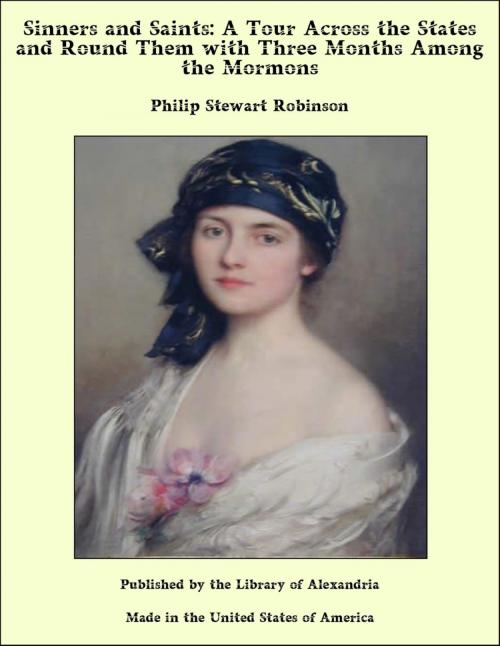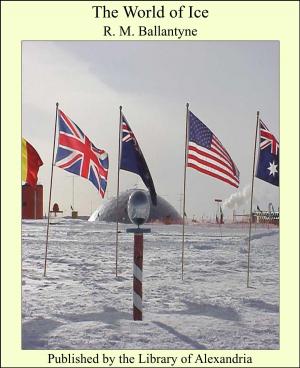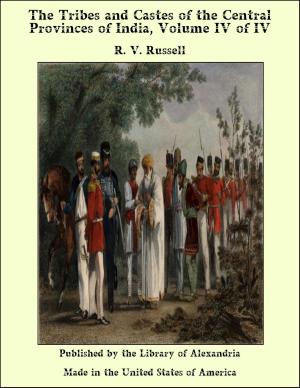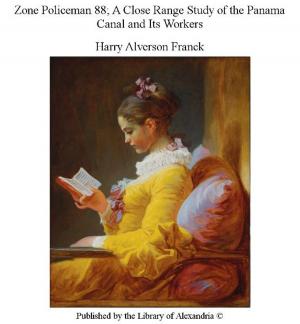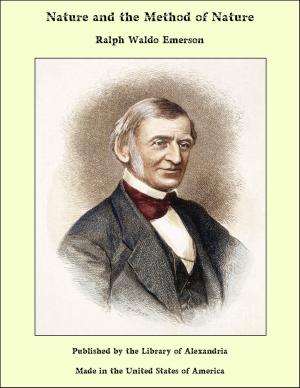Sinners and Saints: A Tour Across the States and Round Them with Three Months Among the Mormons
Nonfiction, Religion & Spirituality, New Age, History, Fiction & Literature| Author: | Philip Stewart Robinson | ISBN: | 9781465614544 |
| Publisher: | Library of Alexandria | Publication: | March 8, 2015 |
| Imprint: | Language: | English |
| Author: | Philip Stewart Robinson |
| ISBN: | 9781465614544 |
| Publisher: | Library of Alexandria |
| Publication: | March 8, 2015 |
| Imprint: | |
| Language: | English |
How treacherously the trains in America start! There is no warning given, so far as an ordinary passenger can see, that the start is under contemplation, and it takes him by surprise. The American understands that "All aboard" means "If you don't jump up at once you'll be left behind." But to those accustomed to a "first" and a "second" and a "third" bell—and accustomed, too, not to get up even then until the guard has begged them as a personal favour to take their seats—the sudden departure of the American locomotive presents itself as a rather shabby sort of practical joke. The quiet, unobtrusive scenery beyond Philadelphia is English in character, and would be still more so if there were hedges instead of railings. By the way, whenever reading biographical notices of distinguished Americans I have been surprised to find that so many of them at one time or other had "split rails" for a subsistence. But now that I have followed the "course of empire" West, I am not the least surprised. I only wonder that every American has not split rails, at one time or another, or, indeed, gone on doing it all his life. For how such a prodigious quantity of rails ever got split (even supposing distinguished men to have assisted in the industry in early life) passes my feeble comprehension. All the way from New York to Chicago there are on an average twenty lines of split rails running parallel with the railway track, in sight all at once! And after all, this is only one narrow strip across a gigantic continent. In fact, the two most prominent "natural features" of the landscape along this route are dwarf firs and split rails. But no writer on America has ever told me so. Nor have I ever been told of the curious misapprehension prevalent in the States as to the liberty of the subject in the British Isles.
How treacherously the trains in America start! There is no warning given, so far as an ordinary passenger can see, that the start is under contemplation, and it takes him by surprise. The American understands that "All aboard" means "If you don't jump up at once you'll be left behind." But to those accustomed to a "first" and a "second" and a "third" bell—and accustomed, too, not to get up even then until the guard has begged them as a personal favour to take their seats—the sudden departure of the American locomotive presents itself as a rather shabby sort of practical joke. The quiet, unobtrusive scenery beyond Philadelphia is English in character, and would be still more so if there were hedges instead of railings. By the way, whenever reading biographical notices of distinguished Americans I have been surprised to find that so many of them at one time or other had "split rails" for a subsistence. But now that I have followed the "course of empire" West, I am not the least surprised. I only wonder that every American has not split rails, at one time or another, or, indeed, gone on doing it all his life. For how such a prodigious quantity of rails ever got split (even supposing distinguished men to have assisted in the industry in early life) passes my feeble comprehension. All the way from New York to Chicago there are on an average twenty lines of split rails running parallel with the railway track, in sight all at once! And after all, this is only one narrow strip across a gigantic continent. In fact, the two most prominent "natural features" of the landscape along this route are dwarf firs and split rails. But no writer on America has ever told me so. Nor have I ever been told of the curious misapprehension prevalent in the States as to the liberty of the subject in the British Isles.
